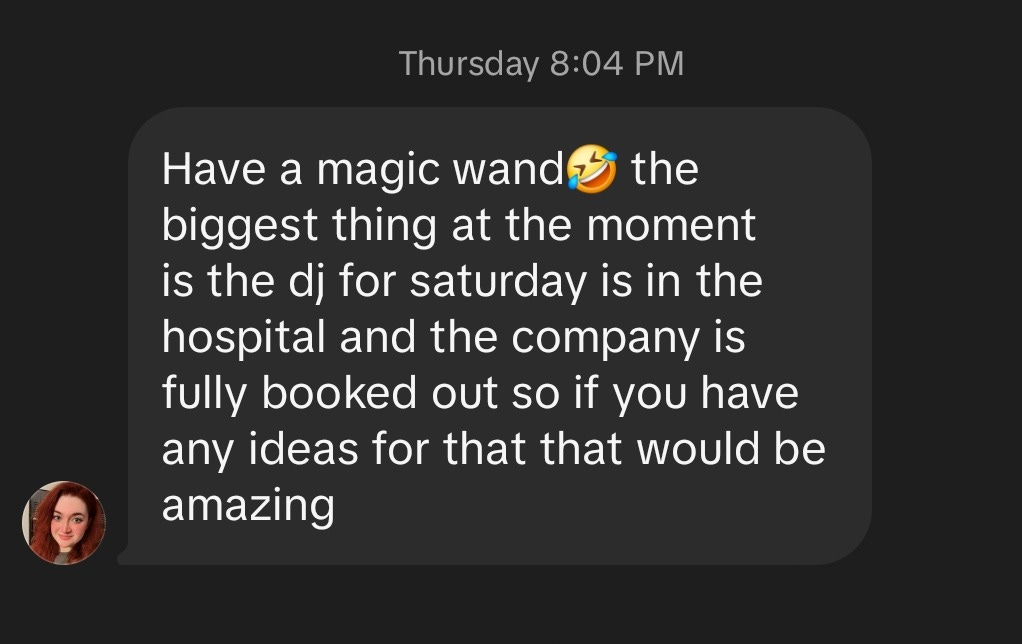A Million Lives Book Festival and Where It Went Wrong
"If I wanted to lose money like this again, I’d just burn it myself."
The chaos that surrounded the A Million Lives Book Festival (AML) was honestly so massive I had a hard time knowing where to begin with this piece. I was not interested in writing rage bait or a slam piece, but to present the facts and let them set the tone for themselves. That’s not an easy task when so many attendees (authors, vendors, narrators, and guests) shared emotional accounts of disappointment and financial loss. In order to make sense of it all, this article will follow a chronological timeline based on interviews and public posts.
The A Millions Lives Book Festival was a convention hosted May 2-3rd 2025 at the Baltimore Convention Center. This two day event was promoted as the perfect place to make bookish friends with an exhibit hall filled with authors and bookish vendors, amazing panels, cosplay meetups, a content creation space, and more. The book festival would conclude with a fantasy themed bookish ball.
But according to ticket paying guests, authors, vendors, and narrators of the event, everything that could go wrong, did go wrong.
The Event Coordinator, Grace Willow organized AML under her business Archer Fantasy Events. It was not her first event, and those who attended the prior “A Night in Terrasen” back in 2024 had mostly good things to say. So at least in the early phases, there wasn’t much in the way of red flags for the AML event.
G.W. reached out to potential authors, narrators and vendors personally, spreading the news of AML mostly by word of mouth.
Pre-Event Communication
Talent joining the event reported that very limited communication approaching the book festival. When they emailed G.W. with questions, they later found out they’d been gossiped about by G.W. as problematic to work with. Then there’s the issue that some, but only some, authors had access to an event discord server where they could receive updates. There was also a Facebook group with about 400 followers, but this seemed more to be for guests than for tabling talent. All in all the messaging across platforms was not consistent.
In the days approaching the event, talent hadn’t received basic instructions such as crucial logistical matters, facility directions, the presence of a loading dock, if there would be staff assistance, and where their vendor table would be located.
Its gets more chaotic with vendors, authors, narrators, and talent not receiving schedules for panels they’d be on (and the schedules were changed up to the day of).
The hotel block placed by event organizer G.W. fell through, forcing talent to seek other options and to pay for them out of pocket.
One author even shared their experience advocating for basic disability needs at the event. She received pushback from G.W. when asking that her PA's fee to be waived, as she required assistance at the event due her disability. While G.W. claimed to have consulted ADA regulations and agreed to waive the fee, she still didn’t comply with basic ADA regulations telling the author her assistant could only have feed waived for the show floor.
AND… There’s so much more I didn’t even cover.
Arrival Day: Vendor Experience
Talent arrived with a 7am start time May 2nd to find no signage outside the building. G.W. claimed this was due to BCC policy in a discord message to authors. Once in the building there was reportedly a single sign for the event.
Talent relied, not on event staff and volunteers, but on FACILITY staff to direct them to their space and to the loading dock if needed.
When they arrived, talent were overwhelmed by scheduling confusion and changes as well as floor plan changes reportedly on a hand drawn map, without any prior communication.
Below is the map sourced from the Event’s own website. I can’t confirm if this is the map talent received, and this one isn’t hand drawn. Either way, it’s certainly lacking a professional feel.
The show floor was a stark, minimally supplied space without many convention basics:
There was no audiovisual tools to be used by panelists.
No tables for panelists, and in at least one case, no chairs for panelists or guests.
Signage was limited to one simple poster the first day, and perhaps 2-3 the second day.
There were no volunteers and only 1-3 event staff according to conflicting reports.
Wifi for vendors and talent was not covered and became another expense for each individual at $80 per day.
Parking was not explained and fees weren’t covered which resulted in a handful of tabling attendees getting trapped in the parking garage at end of day, due to lack of communication.
Talent and guests had no convention guide (map, lists of programming and schedules).
Event Open
When the event opened for the first VIP day, there were more red flags. After being promised roughly 500 attendees, talent flooded social media with videos of an altogether empty show floor.
These small businesses and independently published authors signed up for an event promising decent turn out. Many of them shipped product to Baltimore under this promise and left multiple thousands of dollars in debt.
They are now, justifiably, asking G.W. for receipts and refunds.
Panel & Programming Issues
Those last minute schedule changes I mentioned earlier… They left panelist reeling. Lack of announcements, no staff to collect and direct needed panelists, and changing times cause many to miss their panels altogether. During panels there was no sound equipment, no audiovisual, not a even a table to separate panelists from the audience.
In one instance, a panel led by audiobook narrators, both panelists and audience had to sit on the floor in a completely vacant room.
And a BIPOC panel about writing diversity was scheduled on the VIP only day, limiting their potential audience. A featured author of the event Kalista Neith shared with me that the moderator of the panel was none other than G.W.’s spouse, a white man with no industry experience. As moderator he asked the panel questions without much thought or preparation— the same question phrased multiple ways as if he’d created the question list on chatGPT. The sad part is, there was a BIPOC man among G.W.’s limited team with a supposed journalist degree who G.W. told panelists was the intended moderator. It’s unclear what caused the change, or if G.W. was lying to cover for herself.
Guests Experience
Talent and guests had no convention guide (map, lists of programming and schedules).
Guests didn’t receive badges or wristbands to indicate they were allowed entry to the show floor and panels.
Guest VIP bags, which were a perk of certain ticket prices, were not available for guests, G.W. claiming convention staff lost them.
Like vendors, guests arrived to find a lack of signage, no printed or digital schedules, and unmarked or empty rooms. Many were confused about where to go or what was happening. Some even accidentally wandered into unrelated events at the Baltimore Convention Center, including a cannabis festival held the same weekend.
When asked whether the event matched its advertised description, the response from guests was a resounding no. One sharing, “If the event had delivered what was promised, the ticket price might’ve made sense. But it shouldn’t have cost more than $20.”
One individual with a chronic back condition shared that they were forced to stand through an entire session just to see their favorite narrators, later requiring pain medication.
Still, nearly every attendee pointed to one bright spot: the authors and vendors.
Guests spoke with warmth and gratitude about the creators they met, describing the exhibit hall as welcoming and engaging, not because of the organizers, but in spite of them. “The authors, narrators, and vendors were great… they were trying to support and help each other and it really showed” one guest said. Another added, “It felt fun and inclusive due to the authors… not due to the organizer. She seemed kinda checked out half the time.”
When asked if they would return for another Archer Fantasy event, the answer was nearly unanimous no. “If I wanted to lose money like this again,” one attendee said dryly, “I’d just burn it myself.”
In the end, the guest experience relied entirely on the passion of the events authors and vendors to salvage any sense of community. Without them, attendees say, there would have been nothing left at all.
The Lavender Ball
Now I know everyone reading this article came specifically for a review of the disaster that was the Lavender Ball. Marketed as a black tie, fantasy-themed gala, the crown jewel of the A Million Lives weekend. Attendees expected an elegant evening of music, dancing, and magical immersion. Instead, what they got was a nearly empty ballroom, no decor, no music, and a desert table reminiscent of Costco cupcakes in plastic clamshells.
At one point facility security felt so bad, he brought in his personal speaker, lovingly dubbed “Steve”.
This ball, more than any other part of the weekend, is what detonated public outrage. TikToks from stunned guests, dressed in full gowns and fantasy cosplay, standing in a vacant ballroom with barely a dozen others quickly went viral. One video, viewed over half a million times, simply panned across the vacant ballroom to the sound of ambient silence. The comments exploded with disbelief, support, and anger.
Another added, “She [the organizer] was BIG smiles at the ball until the complaints started. Then she vanished.”
For many, the ball was the breaking point. Not just because it fell short, but because it became a visible emblem of unmet expectations across the whole event. Guests had spent hundreds or even thousands of dollars on travel, outfits, and accommodations. Many had saved for months. And in the end, they were left sitting awkwardly in formalwear in what felt more like a conference room than a fantasy celebration.
Event organizer
While G.W. initially agreed to connect with me for an interview, she ultimately did not follow through. I was respectful, professional, and clear in my outreach. My intent was not to attack, but to give her a voice now that the pressure of the event had subsided. If she chooses to respond in the future, I will update this article or write a follow-up to reflect her perspective.
But in the absence of that, we’re left with what many vendors and guests experienced firsthand— a lack of transparency, inconsistent communication, and a pattern of deflection from an organizer who appeared increasingly overwhelmed and unprepared, and who ultimately shifted blame rather than accepting responsibility.









Thanks for giving it to me straight and direct. You're the best!